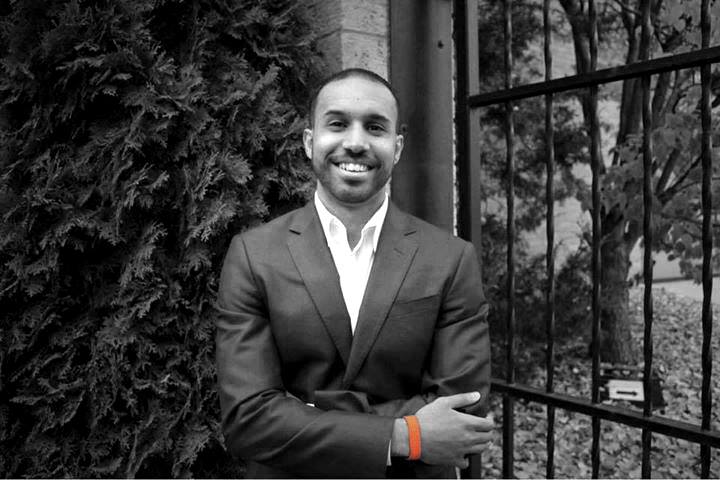Amid what should be his busiest season, entrepreneur Mohamed Malim encountered an obstacle when the Facebook ads his small business depends on were pulled abruptly as part of the social media platform's ban on political advertising surrounding the U.S. election.
From his seemingly endless supply of tenacity, the 2018 St. Thomas graduate earned himself a silver lining: national exposure in the New York Times.
After he reached out to a reporter, the Times interviewed Malim about how Facebook's decision impacted small, social enterprises that aim to support refugees, orphans and the homeless.
Malim's Minneapolis-based company Epimonia, is just that: a hopeful, mission-driven venture. The company makes bracelets and clothing from life jackets that had been worn by refugees fleeing their homes, seeking safety. Malim hires refugees to make the products and he also donates a share of Epimonia’s profits to help refugees navigate the education system and citizenship application process.
"[Facebook] shut down people who were doing good in the world," Malim said. "That hits hard, especially as a social enterprising company. We're giving back."
Epimonia spends thousands of dollars on Facebook ads annually, and Malim says he relies so heavily on Facebook because the investment pays off. For every dollar he spends on a Facebook ad, Malim says his company makes two or three dollars. However, compared to this time last year, Malim estimated his sales are down 40 percent.
Malim's own family fled Somalia and came to the United States when he was just a baby, and because of that, he's had a long-held drive to serve refugees, dating back to his time as a St. Thomas student. When he thinks about profit losses, Malim knows it means he will be able to help fewer refugee families.
"I want to do good in the world," Malim said. "It's not about money, it's about giving back."
While Malim said he supports Facebook's intent to prevent the spread of false information, he said the social media platform could do better. When he appealed his inclusion in the ad ban with Facebook, the platform offered up a solution Malim said felt like false advertising.
"Facebook suggested that for us to run our ads, we just take out the word refugee, because it triggers the algorithm, and I said, 'that's not possible. That's the heart of our brand. We want to tell people we are supporting refugees,'" Malim said.
And tell people he will. Malim said his feature in the New York Times hasn't made up for his losses, but did give Epimonia a boost.
Facebook has yet to lift the ban which has been in place since Nov. 4.
For now, Malim is employing his entrepreneurial spirit to rethink his ad strategy, but hopes he'll be able to resume Facebook ads in January.







